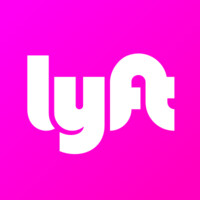
Štěpán Šimsa
Research Scientist at Rossum- Claim this Profile
Click to upgrade to our gold package
for the full feature experience.
-
Czech Native or bilingual proficiency
-
English Full professional proficiency
Topline Score


Bio


Experience
-
Rossum
-
United Kingdom
-
Technology, Information and Internet
-
100 - 200 Employee
-
Research Scientist
-
May 2023 - Present
-
-
Junior Research Scientist
-
Feb 2022 - Apr 2023
-
-
-
Woven by Toyota
-
Japan
-
Software Development
-
700 & Above Employee
-
Software Engineer
-
Jul 2021 - Sep 2021
Level 5, part of Woven Planet, is developing self-driving technology using a machine-learned approach to create safe mobility for everyone. Level 5 was acquired by Woven Planet in July 2021. Level 5, part of Woven Planet, is developing self-driving technology using a machine-learned approach to create safe mobility for everyone. Level 5 was acquired by Woven Planet in July 2021.
-
-
-
Lyft
-
United States
-
Ground Passenger Transportation
-
700 & Above Employee
-
Software Engineer, Level 5, Self-Driving Division
-
Oct 2018 - Jul 2021
Lyft Level 5 (now Toyota Woven Planet) London team works on utilizing high volumes of data collected by cheap sensors (cameras) to train the Autonomous Vehicles and build HD maps. My focus was both on software architecture and on the algorithms. • I developed maintainable and flexible pipelines that reliably process large-scale data collections. I specialized in carefully designing the underlying abstractions to achieve both ease of use and the flexibility needed for the ever-changing algorithms. • I became one of the team's experts on python, especially for unit-testing and typing. I was a sought-after reviewer. • I designed a dataset creation tool used to select a subset of vehicle data collections with a uniform coverage across all city roads. • I desgined parts of the lane boundary generation algorithms based on computer vision, optimization and machine learning. I worked on the algorithm prototypes, on defining the right metrics, on presenting the results and brining up the algorithms to production. I was also a mentor for two other engineers. I cooperated with teams across offices and time zones, improving the communication channels, and helped organize shared work across these teams, especially after a major restructuring in the mapping org. Show less
-
-
-
Blue Vision Labs
-
IT Services and IT Consulting
-
Software Engineer
-
Oct 2018 - Oct 2018
I joined BVL as a full-time employee only a few weeks before it was acquired by Lyft Level 5, making it in time to experience two acquisitions (Lyft Level 5 was later acquired by Woven Planet) with only one set of interviews for my internship in the preceding year. I joined BVL as a full-time employee only a few weeks before it was acquired by Lyft Level 5, making it in time to experience two acquisitions (Lyft Level 5 was later acquired by Woven Planet) with only one set of interviews for my internship in the preceding year.
-
-
-
Blue Vision Labs
-
IT Services and IT Consulting
-
Software Engineering Intern
-
Sep 2017 - Dec 2017
I worked in a team building large-scale crowdsourced maps from images using Computer Vision. I was rewriting the map building pipeline from typescript to python while adding support for distributed computation of the individual algorithms. I set some of the foundations of the python pipeline to build these maps. After 4 years and 2 acquisitions, the principles and design decisions I made during this internship were still in use and praised by other engineers. I worked at Blue Vision Labs as an intern during my 2nd year of Masters degree, effectively finishing the degree in just 1.5 years compared to the standard 2 years. Show less
-
-
-
Rutgers University
-
United States
-
Higher Education
-
700 & Above Employee
-
Research Experiences for Undergraduates
-
Jun 2017 - Jul 2017
I participated in a research program for undergraduates. Every year, top 6-7 students from Charles University are sent to Rutgers University to participate in the program and they work together on a research problem. Our main focus was on a problem regarding group isomorphism in the field of computational complexity. I participated in a research program for undergraduates. Every year, top 6-7 students from Charles University are sent to Rutgers University to participate in the program and they work together on a research problem. Our main focus was on a problem regarding group isomorphism in the field of computational complexity.
-
-
-
Institute of Science and Technology Austria
-
Austria
-
Research Services
-
300 - 400 Employee
-
Research Internship in Computer Science
-
Apr 2016 - Jul 2016
I was on IST Austria for an internship under the supervisor Prof. Krishnendu Chatterjee. The result of the internship was a paper published in Nature and my bachelor thesis. I worked on a topic in Game Theory, more specifically on variants of the prisoner's dilemma that lead to higher cooperation. I was on IST Austria for an internship under the supervisor Prof. Krishnendu Chatterjee. The result of the internship was a paper published in Nature and my bachelor thesis. I worked on a topic in Game Theory, more specifically on variants of the prisoner's dilemma that lead to higher cooperation.
-
-
-
Google
-
United States
-
Software Development
-
700 & Above Employee
-
Software Engineering Intern
-
Jun 2015 - Sep 2015
I was in the Google News group. I coded in C++ and I optimized the number of required web crawl refreshes (significantly reducing resources used for this) by learning when articles appear on which sites and adjusting the crawl rates accordingly. I was in the Google News group. I coded in C++ and I optimized the number of required web crawl refreshes (significantly reducing resources used for this) by learning when articles appear on which sites and adjusting the crawl rates accordingly.
-
-
-
Google
-
United States
-
Software Development
-
700 & Above Employee
-
Software Engineering Intern
-
Jun 2014 - Sep 2014
I was in a group developing a logic programming language called Yedalog. My project was to design and implement (in C++) a pseudorandom number generator that supports reproducibility for distributed executions of the code. I studied the state of the art solution from a paper and designed and implemented a version of this that fit the Yedalog language. I was in a group developing a logic programming language called Yedalog. My project was to design and implement (in C++) a pseudorandom number generator that supports reproducibility for distributed executions of the code. I studied the state of the art solution from a paper and designed and implemented a version of this that fit the Yedalog language.
-
-
Education
-
2016 - 2018

Charles University in Prague
Master's degree, Computer Science -
2013 - 2016

Charles University in Prague
Bachelor's degree, Computer Science
Community













